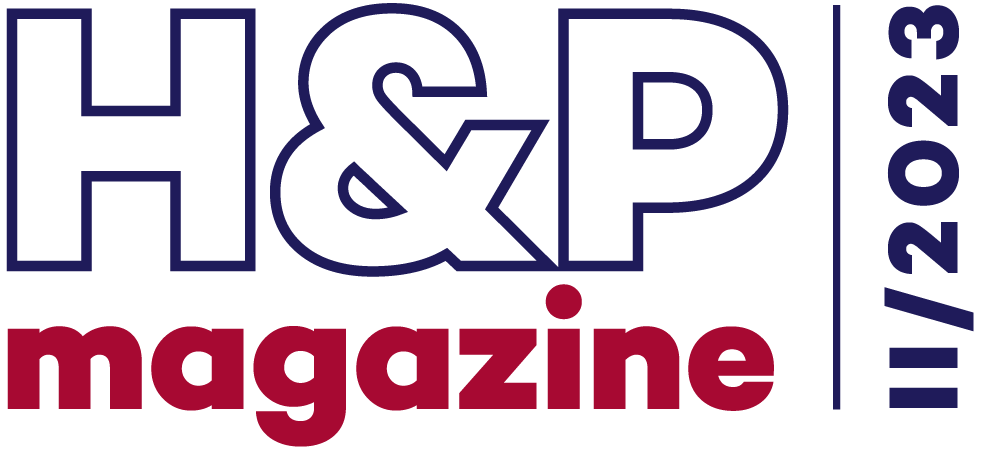The history of companies, especially those that have changed the world, is full of stories of employees who became millionaires thanks to holding shares in the company. How did companies achieve this success? They used employee stock ownership plans, so-called ESOPs. How do such incentive programmes work and what options do we have in the Czech Republic?
Remember the huge Silicon Valley tech boom of the 1990s? Start-ups starting from scratch became giant corporations, and one of the key tools that supported their growth were so-called ESOPs, aka Employee Stock Ownership (Option) Plans. The model where employees acquire a share in the company that they help grow is not new at all. One example is Microsoft, which, according to some estimates, created approximately 10,000 millionaires in the first ten years of its existence.
In the United States in 2022, according to data from the National Center for Employee Ownership, more than 6,250 companies had ESOPs, and over 2,300 companies were even 100% employee-owned. As part of their ESOP plans, companies in the USA pay out nearly USD 90 billion in annual contributions.

An ESOP is generally a program that allows employees (or other associates) to become involved in the operation of the company and gain a share in its success and the value of its growth. ESOPs therefore motivate employees by linking them directly to the success of the company. As the company grows and increases in value, so does the value of the employee's shares or options. In addition, ESOPs often contain terms that restrict the sale of stock or the exercise of options until a certain time. This gives employees a strong incentive to stay with the company and contribute to its growth.
By setting the right parameters for ESOPs and hence motivating employees, the company can start up the business and ensure effective growth.
The competition in the job market is huge, so start-ups and fast-growing companies today face challenges in recruiting and retaining talented employees. The vast majority of start-ups are technology companies whose greatest value is copyright in all its forms, especially source codes, new technologies or innovations. Key employees or co-founders are their carriers. If the company was unable to retain them, such a departure could spell the end of the start-up.
Talent hook
An ESOP is one of the most effective methods to attract and retain these talented employees, especially in the competitive environment of start-ups. However, ESOPs are useful in this respect not only for fast-growing start-ups, where it is often crucial to "hook" people who have a unique idea or technology, or to attract new talent and keep up with steep growth, but also for large corporations that want to motivate their key employees and managers to work together for the long term and thus support continuous business growth.
ESOPs are particularly important for companies that plan to grow at around 20% per year, also for cash flow reasons. Of course, as companies grow, the pressure to raise employee wages and remuneration increases, which can have a financially fatal impact on these companies. For start-ups with limited funds, ESOPs can therefore be an attractive form of compensation that does not require an immediate financial expense. Options are often exercisable only after certain conditions are met, which can help start-ups keep their cash flow under control.
Attractive financial remuneration in the form of shares is also often less costly than increasing wage costs. For example, you can offer employees a share in the profit only from the sale of the company, which might compensate them for the lower remuneration you offered when they joined the company. Such an employee has an interest in the company growing, functioning, and being sold well.
Companies with well-designed and managed ESOPs are also more attractive to investors because they show the management's commitment to employees and their long-term success. Last but not least, it is certainly worth noting that, if set up correctly, certain forms of ESOPs can offer tax benefits for both employers and employees. Tax reliefs and benefits vary by jurisdiction, but may include income tax reduction, tax deferral or capital gains tax reduction. However, it depends on what form of an ESOP you choose in your company.
And how does it all work? In the Czech Republic, start-ups can offer their employees four basic and most used forms of ESOPs, which can be partially combined. There are therefore several options, and they vary depending in particular on whether the employee acquires a share in the company or its stock or receives a financial reward equivalent to his/her virtual share in the company.
ESOP in the shadow
The most commonly used option plan in the Czech Republic is a so-called virtual or shadow ESOP. This is a plan where the participant acquires a virtual share in the company, which carries with it a number of rights. These are detailed in the ESOP. A participant in a virtual ESOP does not acquire an equity interest (shares or stock) in the company but does acquire the right to receive a financial reward, subject, of course, to predetermined conditions. Such conditions are most often time and performance related. Time related conditions are used mainly to allow for employee retention for a certain period of time. Performance related conditions may be set to different performance indicators, which may be variable for each employee, particularly due to the type of work activity and segment.
For example, an employee can receive a percentage of the profit if his/her department achieves a one-third year-on-year increase in profit, or if he/she completes an important project for the company, etc. Most often, however, it is the payment of some financial consideration to the employee at the sale of the company (a so-called exit), where a portion of the purchase price for the sale of the company is distributed to the employees who participated in the ESOP. This is always the main motivator for all employees having such a right.
In any case, participants in virtual ESOPs do not become actual shareholders in the company, which simplifies the ownership and management structure and allows the company's founders or owners to maintain tighter control over decision-making in the company.
These virtual ESOPs are quite variable and can be prepared individually, i.e., tailored to key people in the company, which is usually an option for start-ups in the early stages. However, in the case of start-ups that are already in a later stage of their life (e.g., Series B) and have more employees, then rather general plans work better, which are also simpler administratively and easier to implement. However, companies can combine both general and individual virtual ESOPs together as needed.
Last but not least, the tax aspect should always be kept in mind. The payment of financial consideration to employees under a virtual ESOP is a standard wage bonus from a tax perspective and such financial consideration is therefore subject to the same taxation as the employee’s other ordinary income.
This means that you have to pay not only income tax, but also social security and health insurance contributions for the employee (a difference from equity ESOPs, where the regime is partly different).
Therefore, virtual ESOPs may seem quite interesting, especially from the company’s perspective. However, the perception of this model by the participants themselves may not be so optimistic. Employees do not hold a real share in the company, so the question is how much they are motivated to be loyal in the long term. Virtual shares also do not have the same capital growth or dividend potential as real equity shares.
Motivated shareholder
Another option for implementing incentive plans in the Czech Republic are so-called equity ESOPs. These are classic (equity) option plans in which, after meeting specific conditions, the participant acquires an option (i.e., the right) to purchase a share or stock in the company. In other words, after meeting predetermined conditions, the employee acquires the right to acquire an equity interest in the company and thus becomes a member or shareholder of the company. These conditions are the same as for virtual ESOPs.
In equity ESOPs, special types of shares (stock) are created and then offered to participants. These shares often lack the right to vote at general meetings and the right to dividends. However, such members or shareholders may at least attend general meetings and have the right to information or access to documents. It is therefore important to note that if you give participants a direct share in the company, you are likely to meet them at general meetings where the company’s strategic matters are addressed. Therefore, in some cases, the acquisition of a share is executed just before the actual sale of the company (i.e., before the exit) so that the employees only hold the share for a really short period of time and for the purpose of selling it.
Compared to virtual ESOPs, equity ESOPs also take a different approach to taxation – taxation can occur as early as the acquisition of the share, on the difference by which the participant acquires the share below the market price. At the exit, the difference between the sale price and the purchase price, or the "already taxed" price, is subject to taxation. However, a tax exemption is also possible if the so-called time test is met. At this point, an equity ESOP is more advantageous because the income from the sale of the share is not subject to social security and health insurance contributions.
Direct sale
A modification of the classic (equity) plan, whereby the ESOP participant acquires an equity interest in the company without having to meet additional conditions, is the direct sale of shares or stock. It is not a pure option plan, but it is also a way to motivate key people in the company, where the company offers them a share in the company, and they decide to acquire it from the company for a predetermined price or nominal value.
This type of ESOP is particularly suitable for top key employees or associates of the company (company management, etc.) or for people who bring important know-how to the company or hold essential copyrights to technologies, projects, etc. that are key to the further development of the company.
A vehicle with a purpose
The last modification of the classic option plan is a so-called employee SPV (Special Purpose Vehicle). An employee SPV is formed, i.e., a company, typically a limited liability company or joint stock company, in which a portion of the shares belong to the ESOP participants. The employee SPV therefore has two types of shares. One belongs to the ESOP participants and the other to the founders. It is therefore necessary for the founders (or some of them) to join and manage the employee SPV.
The employee SPV then has a direct share in the company (start-up) equal to the ESOP pool that is determined in the ESOP. This is the size of the shares (stock) in the company that are distributed under the ESOP to the SPV participants. The standard in the Czech and Slovak markets is that a share of 5 to 10% is distributed in this way. The ESOP pool is therefore particularly important for founders and investors. It gives them an overview of how much will be "cut" from, for example, the gain from the sale of the company, or at another event defined in the ESOP.
The advantage of an employee SPV is the complete shielding of employees from the operating company. Often this form is used by start-ups at a later stage of life, for example from 100 employees and above.
Keep up with the trend
An ESOP not only represents a new and flexible way of rewarding employees and other associates, but also symbolizes a deeper trend in human resource management and corporate culture. Today, as technology and innovation accelerate changes in the business environment, it is essential to have tools that allow companies to adapt quickly while keeping key talent motivated.
Today, as technology and innovation accelerate changes in the business environment, it is essential to have tools that allow companies to adapt quickly while keeping key talent motivated.
When implementing ESOPs in the company, it is always important to correctly identify the key employees and associates who should receive this form of reward. At the same time, it's important to consider what stage the start-up or company is at, as all of the above forms have their pros and cons. You must always consider these and adapt the model to your needs.
The choice of the right form ultimately depends on the current state of the company itself, the area of business it is in, or its financial situation or expected exit scenario.
Various extracts and summaries of foreign legislation that emphasise the various tax (and often only alleged) advantages of ESOPs appear in the public domain. However, a close look at the relevant legislation usually reveals that virtual ESOPs do not enjoy any tax benefits at all and equity ESOPs only in that in some countries the taxation of non-monetary income at the acquisition of securities or shares is deferred until the sale ("liquidity event"). This possibility is now also being discussed in the Czech Republic. However, e.g., due to the generous tax exemption of income from sale with respect to individuals (although it is planned to limit it to CZK 40 million per year) compared to foreign arrangements, we often conclude that the Czech tax regime for equity ESOPs is not bad at all.
At the end of the day, properly structuring an ESOP and tailoring its form to each company is always a critical milestone for a properly functioning ESOP. As a matter of fact, in the case of ESOPs, the proverb "When two do the same, it is not the same" is doubly true, because ultimately an ESOP can be the key to rewarding and recognizing those who play a critical role in the success of the company.











